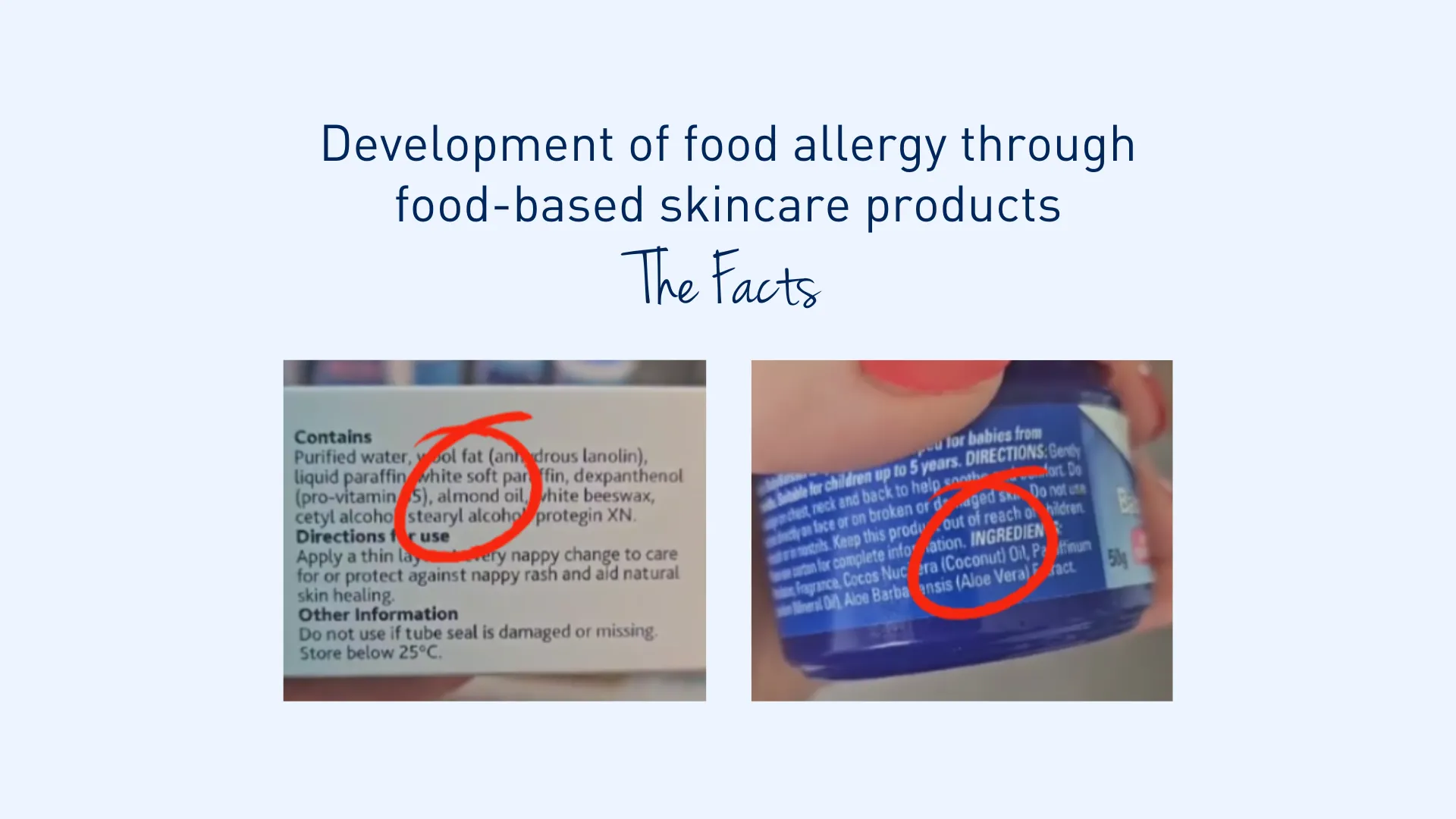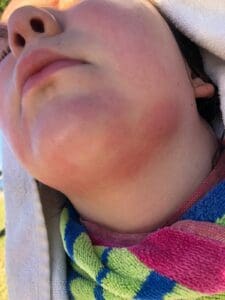
Essential safety advice for your camping adventure
Make sure you are aware of these essential camping safety tips, before you head off on your adventure!

Hands up if you knew that some nappy rash creams aren’t able to be used in daycares because they contain almond oil.
Turns out that this isn’t just important for little ones with known allergies – did you know that it is not recommended to use products with food ingredients on dry/broken skin, as it can increase the chance of developing an allergy to this food?
Casey here – At drop-off last week, I handed one of the teachers a sensitive facial sunscreen as my youngest had been getting a rash from the supplied sunscreen at daycare. She checked the label to make sure it had no allergens in it – namely almond and coconut oil which can often be found (in particular) on the ingredients listing for sensitive sunscreens.
This hadn’t actually occurred to me to check and sent me down a little rabbit hole of food-based skincare products and the importance of checking labels before buying.
“There is growing evidence that skincare products that include food as an ingredient and are used on very dry or damaged skin (broken skin), can lead to the development of an allergy to that food. In addition, people with a food allergy should not apply cream or lotions to their skin that contain their food allergen, as it could enter the body through areas of broken skin.”
– Development of food allergy through food-based skincare products (no date) Allergy & Anaphylaxis Australia (A&AA). Available at: https://allergyfacts.org.au/news-alerts/allergy-matters-blog/development-of-food-allergy-through-food-based-skincare-products (Accessed: 17 November 2023).
We posted a reel on Instagram that contained a mix of products we had at home and that we found in shops.
This included nappy rash cream with almond oil, baby decongestant rub with coconut oil, baby moisturiser with avocado oil and coconut oil (almond oil is not uncommon to see in moisturisers also), baby shampoo with wheat, nasal spray with sesame oil, and sunscreen with oatmeal (it is not uncommon to see almond and coconut oil here as well as mentioned above).
In addition to what we managed to record, we have also seen laundry liquids with almond oil, antiseptic creams with almond oil, ear drops with peanut oil, child’s pain relief drops with wheat, soaps with goat or cow’s milk, and tooth mousse with milk.
These products – and those in the reel – are mixed between clearly labeled with allergen notices, or requiring a little reading to find.
Amongst the “wow I had no idea” comments from followers, we had several comments asking “At what age is this recommendation no longer applicable / when can you stop following this recommendation”?
It’s actually something to be mindful of for all ages – from the article referenced above and in the reference list below “Research has linked the repeated use by adults with eczema of moisturisers, soaps and bath oils containing peanuts, oats, wheat and goat’s milk to the development of food allergy. It is thought that putting food allergens on the skin through the use of skincare products may sensitise the person to that food through the skin, leading to the development of a food allergy. Skincare products containing food should not be rubbed on inflamed broken skin.”
Make sure you always read the labels, and avoid products that contain food-based ingredients especially if it is intended for use on dry/broken skin.
References
Development of food allergy through food-based skincare products – Allergy & Anaphylaxis Australia

Make sure you are aware of these essential camping safety tips, before you head off on your adventure!

Do you know the correct first aid for Funnel Web spider bites?
